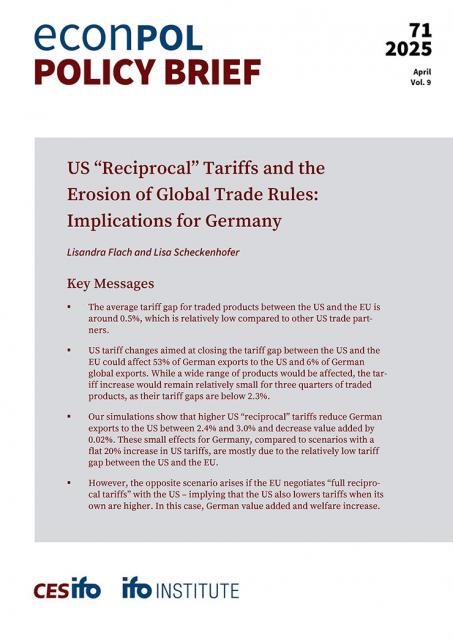News Archive

Your Vote is (no) Secret! How Low Voter Density Harms Voter Anonymity and Biases Elections in Italy
|
Working Paper
| News
The density of voters in polling regions limits the secrecy of voting and can affect the outcome of Italian elections, with the same impact on countries with a similar voting mechanism. In the first study to analyze the link between voter density and election bias, authors Mauro Caselli (University of Trento) and Paolo Falco (University of Copenhagen) examined all municipal elections conducted in Italy from 1989 to 2015. They found that lower voter density significantly increases the probability of re-election for an incumbent in a municipal office, while in areas with a higher number of voters the probability of re-election for an incumbent falls.
... Details

Is Proportional Representation a Cure for Democratic Discontent?
|
Opinion
| News
Public dissatisfaction with politicians and representative democracy is widespread in Europe and should not be taken lightly. The enduring protest of the ‘Yellow Vests’ in France is just one prominent example
of the popular view that elections regularly fail to select governments that are reliably responsive to the preferences of a large part of the population. EconPol researcher Michael Becher (IAST, Toulouse) says resolving this dilemma requires a value judgement.
... Details

Public Debt and the Risk Premium: A Dangerous Doom Loop
|
Opinion
| News
The view that deficits and higher public debt can be beneficial received an important boost via Olivier Blanchard’s 2019 presidential address at the American Economic Association (Blanchard 2019). In this opinion piece, which first appeared on VoxEU, Cinzia Alcidi and Daniel Gros (CEPS, Brussels) examine Blanchard’s analysis and the longer-term link between risk premia and public finances.
... Details

How Serious Politics Must Counter Populism
|
Opinion
| News
EconPol’s speaker Clemens Fuest (ifo, Munich) says moderate politicians should compete with populists by offering realistic perspectives, and suggests Emmanuel Macron can serve as a role model in that regard. He also suggests that politics in Europe would benefit from putting in more effort to explain complex economic policy problems and pointing out where government action reaches its limits.
... Details

Sectoral Reallocations, Real Estate Shocks and Productivity Divergence in Europe: a Tale of Three Countries
|
Policy Report
| News
The creation of the European Monetary Union (EMU) in 1999 was expected to become a catalyst for real convergence in Europe. However, the authors of this policy report find that real divergence actually increased from the early 1990s, as evidenced by low productivity growth in the "periphery" of the Euro area relative to "core" countries. The report investigates the role of sectoral reallocation in this divergence, focusing on three archetypal countries: France, Germany, and Spain.
... Details
